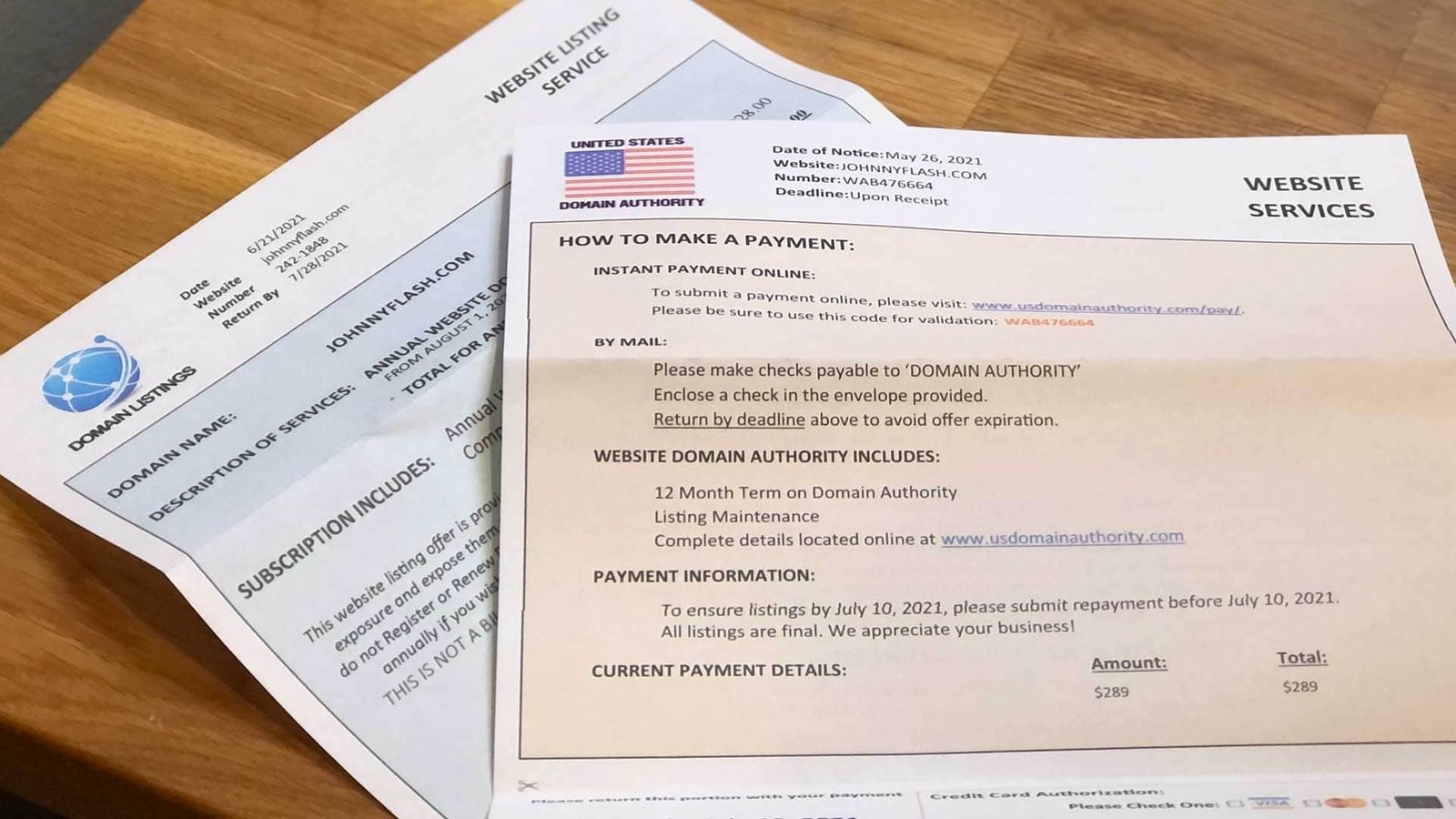Domain Registration Scams to Watch Out For
- By -Daisy
- Posted on
- Posted in Domain Registration
In today’s digital age, domain names are essential for businesses, organizations, and individuals looking to establish an online presence. However, as the demand for domain names grows, so do scams targeting unsuspecting users. Domain registration scams can trick people into paying for services they don’t need, stealing sensitive information, or hijacking valuable domain names. It’s important to be aware of these scams and take the necessary steps to avoid falling victim to them. In this article, we’ll explore some common domain registration scams and offer tips on how to protect yourself.

Fake Domain Expiry Notices
One of the most common domain registration scams involves fake renewal or expiration notices. Scammers often send emails or letters that appear to come from legitimate domain registrars, informing the recipient that their domain name is about to expire. These notices may urge users to act quickly to avoid losing their domain or to update their payment details.
How to Spot This Scam:
- Look for Errors: Fake notices often contain spelling or grammatical mistakes.
- Check the Sender: Verify that the email is coming from the official registrar. Look closely at the sender’s email address; scammers often use addresses that look similar but are slightly altered.
- Don’t Click on Links: Instead of clicking on links in the email, go directly to your registrar’s website to check the status of your domain.
How to Protect Yourself:
- Always renew your domain directly through the official website of your domain registrar.
- Set up automatic renewals to prevent accidental lapses.
- Monitor your domain’s expiration date regularly to avoid last-minute surprises.
Domain Name “Locking” Scams
Some scammers use a tactic where they claim to “lock” your domain to prevent unauthorized transfers, but in reality, they are simply trying to charge you for unnecessary services. These fake “lock” services often include hidden fees or additional services you don’t need.
How to Spot This Scam:
- No Prior Contact: If you didn’t request a domain lock, be suspicious of unexpected offers to lock your domain.
- High Fees: Be cautious of exorbitant fees for domain locking, especially if they seem unusually high compared to industry standards.
How to Protect Yourself:
- Only use domain locking features provided by your trusted registrar.
- Understand the terms and conditions of domain locking and whether it’s necessary for your domain.
Phishing Scams with Fake Domain Registration Websites
Phishing scams occur when scammers create fake domain registration websites that closely resemble legitimate registrars. They trick users into entering personal details, such as credit card information or login credentials, by offering incredibly cheap domain registration prices.
How to Spot This Scam:
- Look for Subtle Differences: Check the website’s URL carefully. Fake sites may use misspelled domain names or suspicious-looking web addresses.
- Too Good to Be True: If the domain registration offers a deal that seems too good to be true, it probably is.
How to Protect Yourself:
- Always verify the domain registrar by checking reviews, their website’s security (look for HTTPS), and whether they are ICANN-accredited.
- Never enter sensitive information on websites you’re unsure about.
- Use a secure payment method like a credit card, which may offer additional fraud protection.
Domain Hijacking Scams
Domain hijacking occurs when a scammer gains unauthorized access to a domain account and transfers the domain to their control. This can happen when domain registrars or hosting providers are hacked, or when an unsuspecting owner falls for phishing or social engineering tactics.
How to Spot This Scam:
- Unexpected Account Changes: If you notice strange activities in your domain account, such as email changes or transfers you didn’t initiate, it could be a sign of hijacking.
- Domain Ownership Issues: If you are unable to access your domain or see your ownership information changed, you may have fallen victim to hijacking.
How to Protect Yourself:
- Use strong, unique passwords for your domain registration accounts.
- Enable two-factor authentication (2FA) for added security.
- Regularly check your domain’s registration details to ensure everything is correct.
- Keep your contact details up to date with your domain registrar to receive important notifications.
Conclusion
Domain registration scams are becoming more sophisticated, and they can have serious consequences for your online presence. By being aware of these scams and taking the necessary precautions, you can protect your domain name, sensitive information, and online identity. Always conduct due diligence when registering a domain and stay cautious of deals that seem too good to be true.



